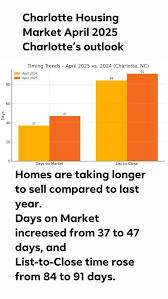The Shift Towards Homeownership in 2025
As the calendar turns closer to 2025, Canadians are faced with a looming question: what does the future hold for housing? Over the past few years, the real estate landscape has changed rapidly, with skyrocketing prices, increased demand for sustainable living, and a shift towards urbanism that reflects a modern lifestyle. Trends point towards a homeowners’ market that promises to be transformative, yet riddled with challenges.
Current Trends in Canadian Housing
According to the Canadian Real Estate Association (CREA), home sales have steadily increased, although supply has lagged behind demand. In 2023, the average home price in major urban centres reached approximately $740,000, a 15% increase since 2021. The price surge is attributed to a combination of low interest rates, an influx of younger buyers, and heightened competition among investors venturing into the real estate market.
A New Approach to Sustainability
One notable trend shaping the housing landscape in 2025 is the growing emphasis on sustainability. Experts predict that a future-focused approach will incorporate eco-friendly building materials and energy-efficient homes. As environmental awareness grows, many prospective buyers are prioritizing homes that promise lower carbon footprints. “Canadians are becoming increasingly conscious about climate change and its impacts on housing options. By 2025, we expect to see a significant shift toward green homes that not only bring comfort but also align with environmental goals,” says Dr. Alison Mendez, a leading environmental economist.
Public Opinion and Social Media Sentiment
Public sentiment surrounding housing continues to evolve, with many Canadians expressing frustration over affordability. Recent polls indicate that 68% of individuals believe home ownership is a distant dream due to rising costs, while 55% support government intervention to stabilize the housing market. Social media platforms are alight with discussions revolving around housing solutions, with hashtags like #HousingForAll and #AffordableLiving trending across Twitter and Instagram.
Challenges Ahead for Housing 2025
While the outlook appears promising, significant hurdles remain. Real estate professionals warn that inadequate housing supply, zoning regulations, and soaring construction costs could hinder progress. Areas known for their attractiveness, such as Toronto and Vancouver, are already experiencing severe supply shortfalls that threaten affordability and accessibility. In response, some municipalities are exploring innovative housing models, such as co-housing and multi-generational living, to adapt to evolving needs.
Preparing for the Shift in Housing Culture
As Canada approaches 2025, the necessity for reform becomes increasingly urgent. A collaborative effort between government, industry stakeholders, and communities is essential to create sustainable, affordable housing solutions. Programs aimed at electrifying homes, along with efforts to repurpose existing structures, will likely gain steam in the coming years. Advocates urge that public dialogue remains at the forefront as discussions about housing continue to grow.
Looking Ahead: The Future of Living
The journey towards housing 2025 is anything but linear. With rapid technological advancements, climate change challenges, and demographic shifts in play, the Canadian housing market may resemble something we have yet to envision. Interested stakeholders must remain agile, adaptable, and open to rethinking the very definition of home. As we venture further into the future, it’s clear that the conversation must continue evolving, laying the groundwork for a housing landscape that is equitable, sustainable, and welcoming for all.

